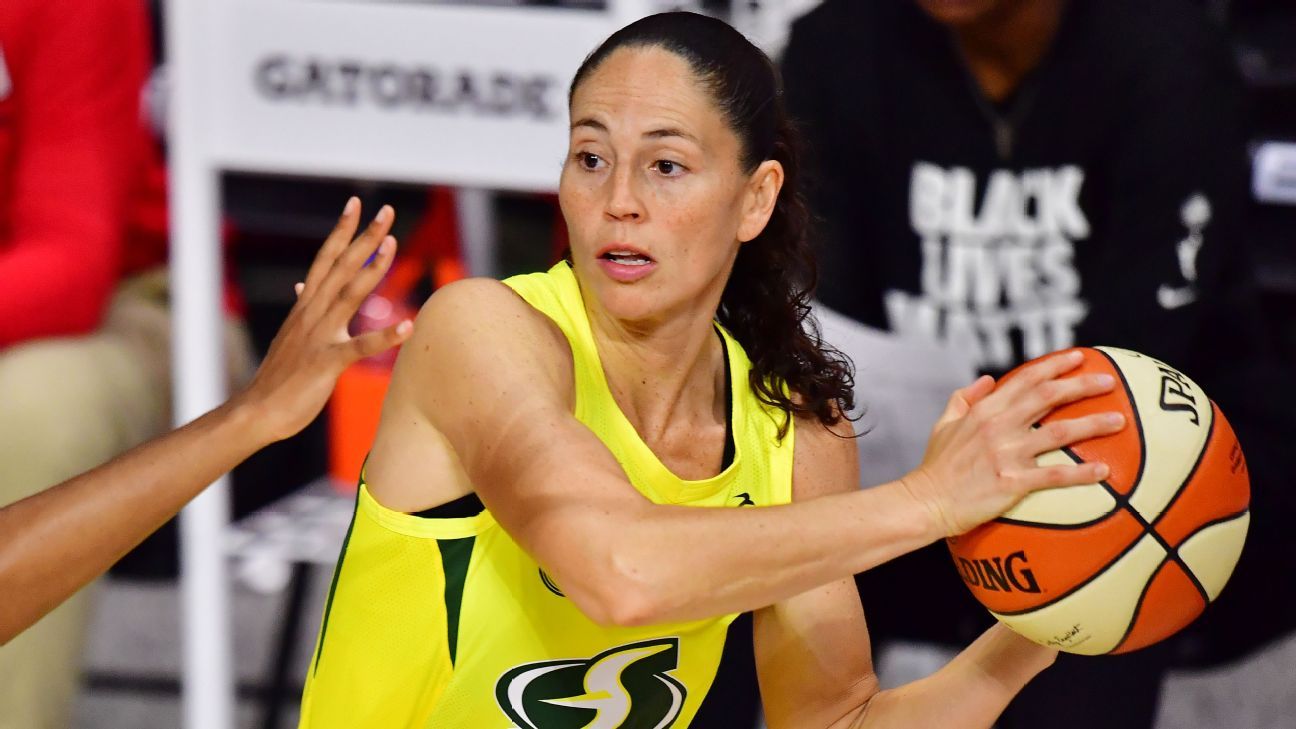
Seattle Storm point guard and 2020 WNBA champion Sue Bird reiterated remarks made by her girlfriend, soccer standout Megan Rapinoe, about why the U.S. women's soccer team seems to enjoy more public support than the U.S. women's basketball team and the WNBA in an interview with CNN that aired Saturday.
Bird, speaking to Don Riddell of CNN's "World Sport," was asked about Rapinoe's remarks in an Oct. 5 article in The Players' Tribune in which she talked about the U.S. women's soccer team getting broad-based acclaim for the winning the Women's World Cup in 2019, and contrasted that to less attention paid to women's basketball. Rapinoe wrote that the perceived demographics of the sports was a primary reason.
Asked by Riddell to summarize that, Bird said, "To be completely blunt, but also kind of simple, soccer players generally are cute little white girls. And I think basketball players, we're all shapes and sizes.
"It's 70-80% Black women, a lot of gay women. We're tall; we're big. And I think there's just maybe this intimidation factor with that. People are quick to talk about it, judge it, put it down. And soccer, you just don't see that just based on how they look."
Bird and the Seattle Storm won the WNBA championship on Oct. 6 in the bubble in Bradenton, Florida. It was Bird's fourth WNBA title, and she also has four Olympic gold medals. Rapinoe spent the summer in the bubble with Bird. They've been a couple since 2016.
Rapinoe wrote in her piece for The Players' Tribune that the players for the U.S. women's national team in soccer were perceived as "straight, cute, unthreatening, suburban white girls next door. It's not actually who we are -- the WNT's racial diversity, though not yet where it needs to be, is improving every year. And, you know, breaking news ... I'm gay. But by and large, that's the perception. And it's certainly how we're marketed to a lot of people."
Riddell asked Bird if the WNBA needed to market itself in a similar fashion to how Rapinoe described soccer's marketing. Bird, who turned 40 on Friday and has been in the WNBA since 2002, said she was part of a similar "girl-next-door" marketing approach that the league tried several years ago. But she said that does not represent a lot of the league's personnel. Bird also has spoken in the past about how limiting and restrictive that view of women's sports is.
"The problem is not the marketing, per se," Bird told CNN. "The problem is how society and how the outside world is willing to accept the cute girl next door, but not willing to accept, or embrace, or not judge these basketball players who are tall, Black, gay.
"That's kind of, to me, where the issue is. Where I feel like I've learned throughout that process is you have to be who you are. You have to be to be true to who you are and authentic.
"We [the WNBA] are representing all that we are. We're representing every day the values that we want to push forward in our world. And I feel like you can go to bed at night and sleep well knowing you're being true to yourself, and that's more important than anything."















 Phone: (800) 737. 6040
Phone: (800) 737. 6040 Fax: (800) 825 5558
Fax: (800) 825 5558 Website:
Website:  Email:
Email: 






